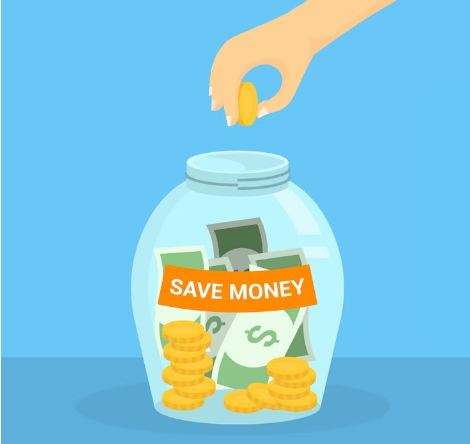In a world filled with constant distractions and material abundance, the concept of minimalism has gained popularity as a way to simplify our lives and find contentment in the essentials. Minimalism is not just about decluttering physical possessions; it’s a mindset that encourages intentional living and focusing on what truly matters. In this blog post, we will explore the art of saving money by being minimalism, its benefits, and how it can help you save money while leading a more fulfilling life.
What is Minimalism?
At its core, minimalism is about eliminating excess and embracing a simpler, more intentional lifestyle. It’s a conscious choice to remove distractions and unnecessary possessions, allowing you to focus on what brings you joy and fulfillment. Minimalism is different for everyone, as it involves identifying your own priorities and aligning your life accordingly.
The Benefits of Minimalism
Embracing minimalism can bring numerous benefits to your life, including:
1. Clarity and Focus
By removing clutter and distractions, you create a clearer physical and mental space. This allows you to focus on your goals, passions, and the things that truly matter to you.
2. Reduced Stress and Overwhelm
Living with fewer possessions and commitments can reduce stress and overwhelm. You free up mental and physical energy by simplifying your life, leading to a greater sense of calm and well-being.
3. More Time and Freedom
Minimalism helps you reclaim your time and regain control over your schedule. With fewer possessions to manage and fewer commitments, you have more freedom to pursue what you love and spend time with the people who matter most to you.
4. Financial Savings
A key benefit of minimalism is the potential for significant financial savings. By curbing impulsive buying habits and focusing on essential purchases, you can save money in the long run. Minimalism encourages conscious spending and avoiding unnecessary expenses.
How to Embrace Minimalism and Save Money
Here are practical tips to help you incorporate minimalism into your life and achieve financial savings:
1. Declutter and Simplify
Start by decluttering your living space. Assess your belongings and keep only what truly serves a purpose or brings you joy. Donate or sell the items you no longer need or use. As you declutter, be mindful of your shopping habits and avoid accumulating new possessions unless they are essential.
2. Adopt a Mindful Spending Approach
Practice mindful spending by considering your purchases carefully. Ask yourself if an item aligns with your values, if it serves a genuine purpose, and if it brings lasting joy. Avoid impulse buying and take time to research products before making a purchase. By being more intentional with your spending, you can avoid unnecessary expenses.
3. Prioritize Experiences over Material Possessions
Instead of seeking happiness in material possessions, focus on experiences and meaningful connections. Allocate your resources towards creating memories and pursuing activities that bring you joy. This shift in mindset can lead to a more fulfilling life and save money on unnecessary material goods.
4. Evaluate Subscriptions and Memberships
Review your subscriptions and memberships to determine if they are truly necessary. Cancel those that no longer add value to your life. By cutting down on recurring expenses, you can redirect those funds towards your financial goals or experiences that align with your values.
5. Practice Conscious Consumption
When making purchases, opt for quality over quantity. Invest in items that are built to last and serve multiple purposes. Choose sustainable and ethically-produced products that align with your values. By investing in quality, you reduce the need for frequent replacements, which can save you money in the long run.
6. Embrace Minimalist Home Decor
When it comes to decorating your living space, embrace minimalist principles. Choose a few essential and meaningful items that enhance the functionality and aesthetics of your home. Focus on simplicity, clean lines, and a clutter-free environment. Minimalist home decor not only creates a sense of calm but also reduces the urge to accumulate unnecessary items.
7. Practice Mindful Eating and Meal Planning
Apply minimalism to your approach to food by practicing mindful eating and meal planning. Focus on quality, nourishing ingredients and avoid excessive food waste. Plan your meals in advance to avoid unnecessary spending on takeout or unhealthy convenience foods. By embracing simplicity in your food choices, you can save money and prioritize your well-being.
8. Reduce Transportation Costs
Consider minimizing your transportation expenses by embracing alternative modes of transport. Opt for walking, biking, or using public transportation whenever possible. Carpooling with others can also reduce fuel costs and contribute to a more sustainable lifestyle. By reducing your reliance on private vehicles, you can save money on fuel, maintenance, and parking.
9. Evaluate Your Living Space
Assess your living space and consider downsizing if it aligns with your goals. A smaller home or apartment typically comes with lower rent or mortgage payments, reduced utility costs, and less space to fill with unnecessary possessions. Downsizing can free up financial resources and allow you to live more intentionally within your means.
10. Focus on Quality Time and Relationships
Shift your focus from material possessions to quality time spent with loved ones. Cultivate meaningful relationships and create lasting memories through shared experiences. Engage in activities that don’t require excessive spending, such as picnics in the park, game nights at home, or exploring nature. Building strong connections and nurturing relationships can bring immense joy and fulfillment.
Conclusion
Embracing the art of minimalism allows you to simplify your life, gain clarity, and focus on what truly matters. By intentionally curating your belongings, practicing mindful spending, and prioritizing experiences over material possessions, you can achieve financial savings and lead a more fulfilling life. Remember, minimalism is a personal journey, so embrace the aspects that resonate with you and adapt them to your unique circumstances. By embracing minimalism, you can simplify your life, save money, and create space for what brings you true happiness.





